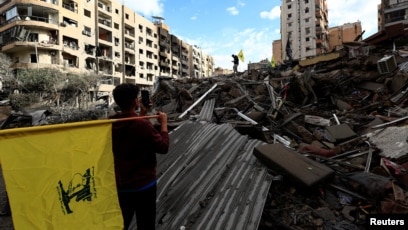Israel Issues Stark Warning to Lebanon Amid Tensions with Hezbollah
In a significant escalation of rhetoric, Israeli Defense Minister Israel Katz has warned Lebanon that Israel will no longer distinguish between the Lebanese state and the militant group Hezbollah. The warning, made during a statement on Tuesday, comes in the wake of a fragile cease-fire in the region, effectively putting Lebanon on notice as tensions escalate.
Israel’s Uncompromising Stance
Katz characterized any return to hostilities as a trigger for a strong and uncompromising Israeli response, stating, “There will no longer be an exemption for the state of Lebanon.” This marks a notable shift in Israel’s long-standing policy of distinguishing between the Lebanese government and Hezbollah, a group that has been involved in various military conflicts with Israel. Under this new policy, Israel intends to exercise what Katz described as a “maximum response and zero tolerance.”
“If we return to war, we will act strongly, go deeper, and no longer exempt the state of Lebanon,” Katz emphasized, urging Lebanese authorities to take responsibility for the activities of Hezbollah.
Cease-Fire Agreement and Hezbollah’s Role
The Israeli defense minister specifically pointed to the cease-fire agreement ratified last Wednesday, which outlines measures designed to limit the influence of Hezbollah within Lebanon, particularly in the region south of the Litani River. According to the terms of this agreement, it is imperative for the Lebanese army to enforce these provisions, which include the removal of Hezbollah militants and the dismantling of their military infrastructure in these areas.
“[Lebanon must] authorize the Lebanese army to enforce their part, to keep Hezbollah away beyond the Litani [River] and to dismantle all the infrastructure,” Katz said.
Escalating Violence and Recent Airstrikes
This sharp warning from Israel follows a series of Israeli airstrikes on Monday evening, which reportedly resulted in the deaths of 11 people. The strikes occurred after Hezbollah launched mortar rounds into the Mount Dov region, reflecting the ongoing volatility in this contested territory. Internationally recognized as part of Syria, the Golan Heights has been occupied by Israel since 1967, a situation further complicated by the Trump administration’s acknowledgment of Israeli sovereignty over the region, a policy that has continued under the Biden administration.
Hezbollah has claimed its recent actions were a direct response to what it described as “repeated violations” of Lebanese airspace by Israel, exemplifying the cycle of retaliation that has marked the long-standing conflict. Despite the severe consequences of re-engagement in hostilities, Katz’s statements indicate Israel’s readiness to escalate its military operations against both Hezbollah and Lebanon as a state.
The Role of International Diplomacy
Amid these tensions, international mediators including the United States and France have voiced concerns regarding potential violations of the cease-fire. Both nations, instrumental in brokering the truce, have urged restraint from Israel, particularly following reports of Israeli surveillance over Beirut that could violate the terms of the cease-fire.
U.S. National Security Council communications adviser John Kirby described the conflict as being in a state of “dramatic reduction,” despite the continuing clashes. Kirby emphasized that while hostilities persist, mechanisms aimed at preventing escalation remain effective.
The High Stakes for Lebanon
The tenuous cease-fire puts Lebanon in a precarious position as it navigates the dual pressures of managing internal stability and external defense against Israeli military actions. The Lebanese government faces mounting pressure to rein in Hezbollah, as failure to do so could elevate Lebanon’s risk of being treated as an active participant in the conflict by Israel.
With ongoing threats emanating from both sides, the current landscape in the region remains volatile, where diplomatic efforts could easily falter under the weight of military ambitions and the history of hostilities. The stakes are particularly high for Lebanon, as there is potential for not only military engagement but also significant socio-economic repercussions resulting from further conflict.
Conclusion: A Call for Responsibility
As tensions continue to rise, the international community watches closely. Both Israel and Hezbollah’s actions will determine the immediate future of the region. The call for the Lebanese army to take decisive action against Hezbollah illustrates the complex interplay of domestic and international politics as Lebanon strives to maintain its sovereignty while managing the influence of armed groups on its territory.
With Israel’s new stance indicating a willingness to hold the state of Lebanon accountable for Hezbollah’s actions, the need for a cohesive and responsible response from the Lebanese government has never been more pressing. The path forward will require careful diplomacy, stringent enforcement of cease-fire terms, and a commitment to de-escalation — elements believed to be critical for achieving lasting peace in an area long plagued by conflict.
